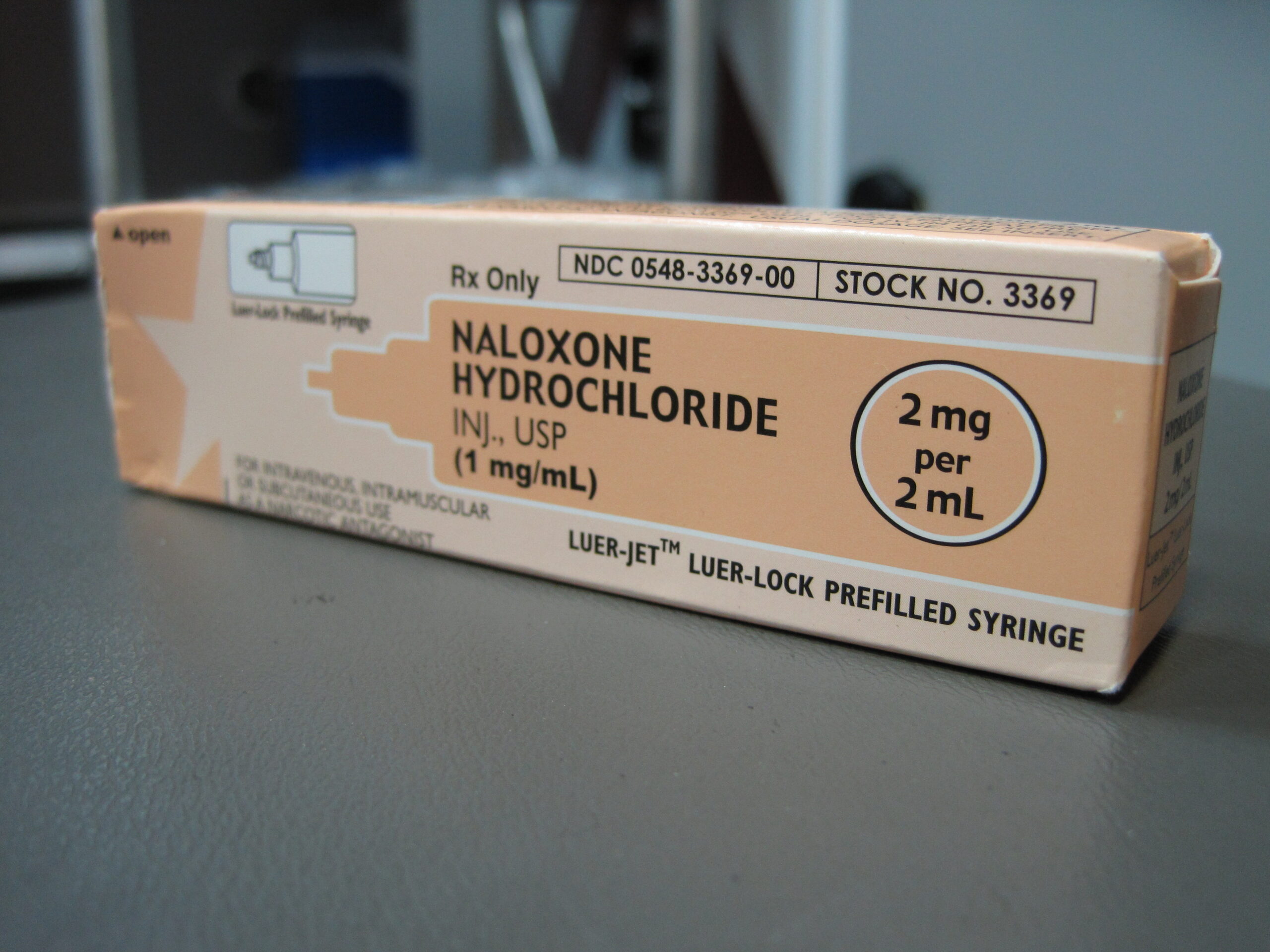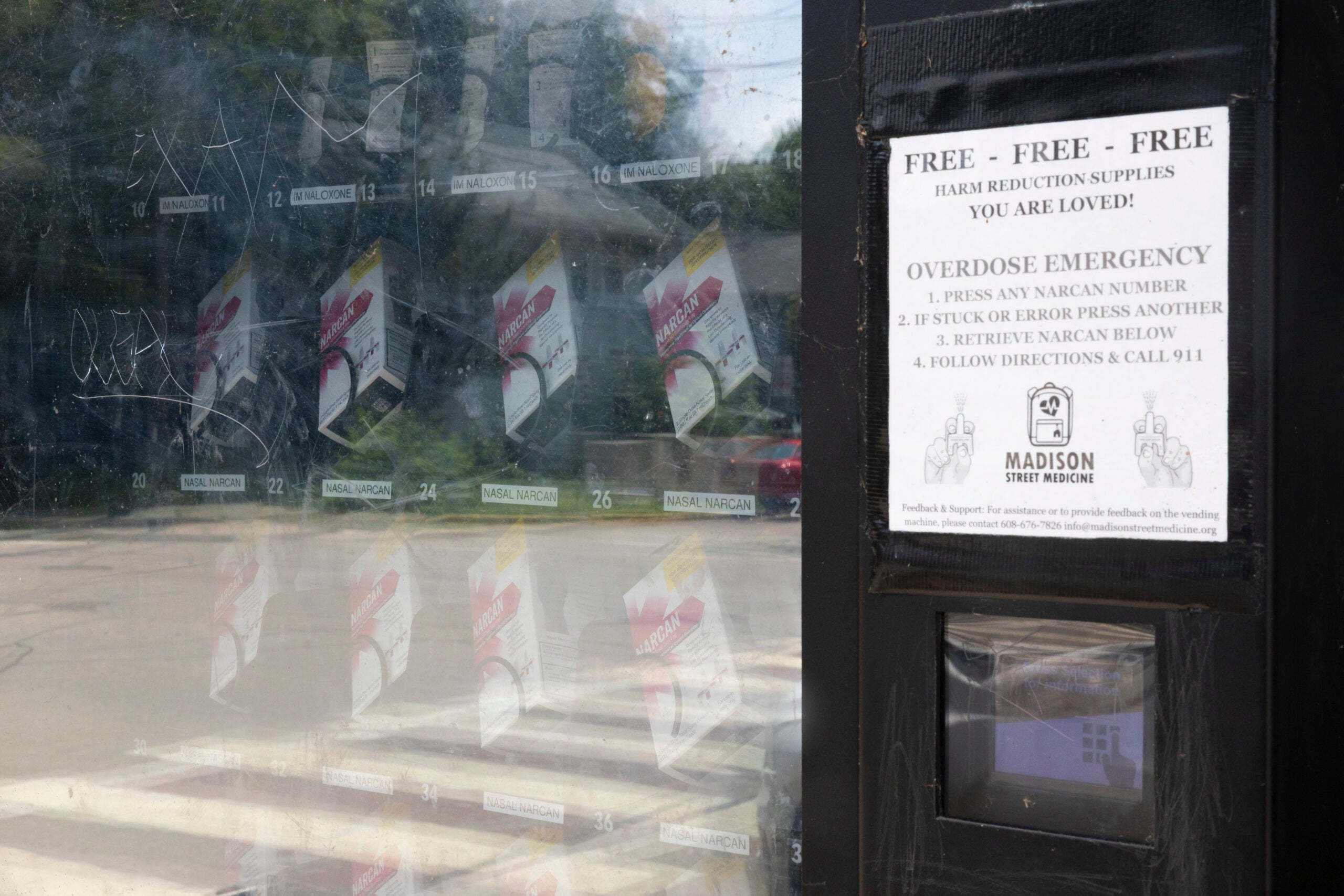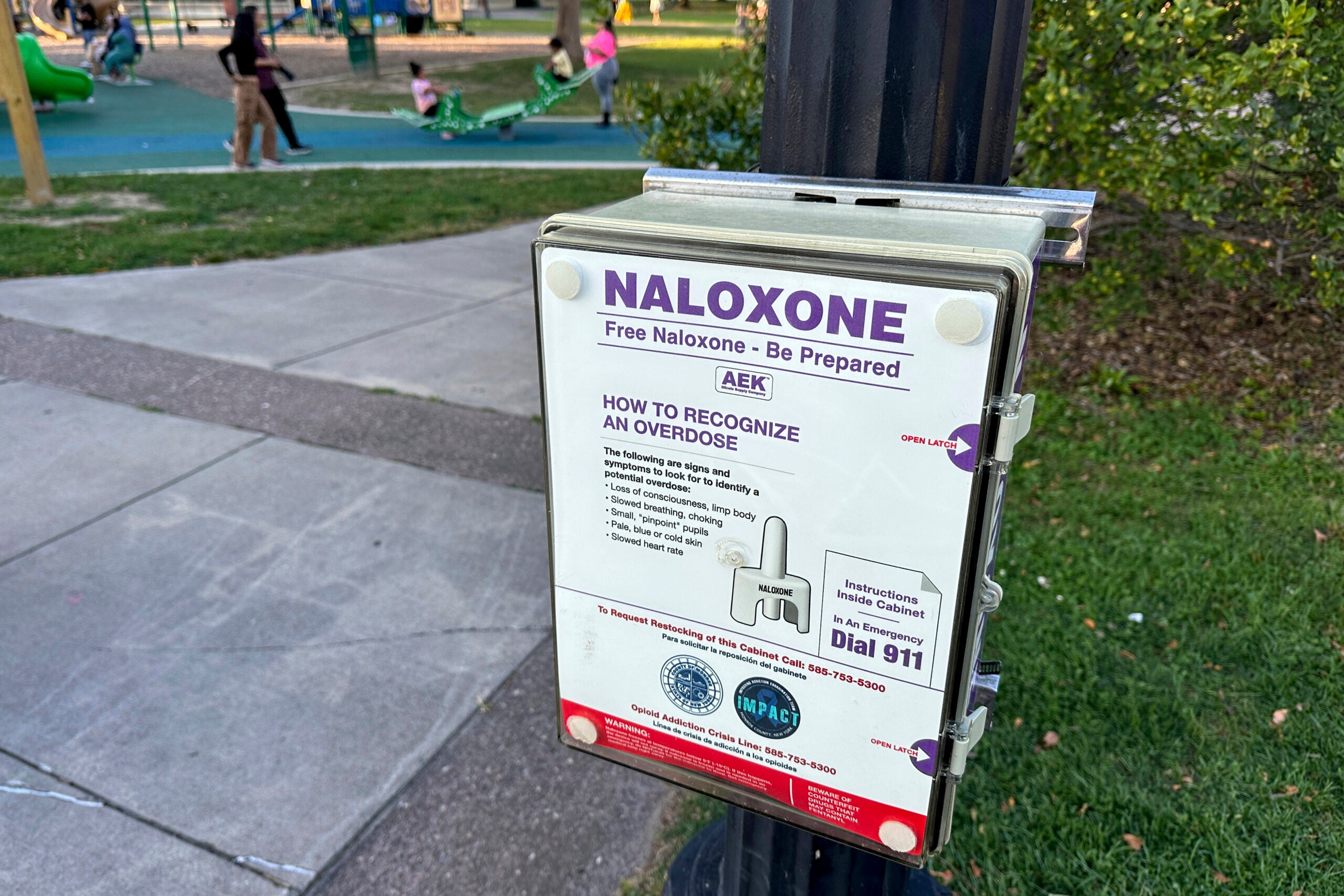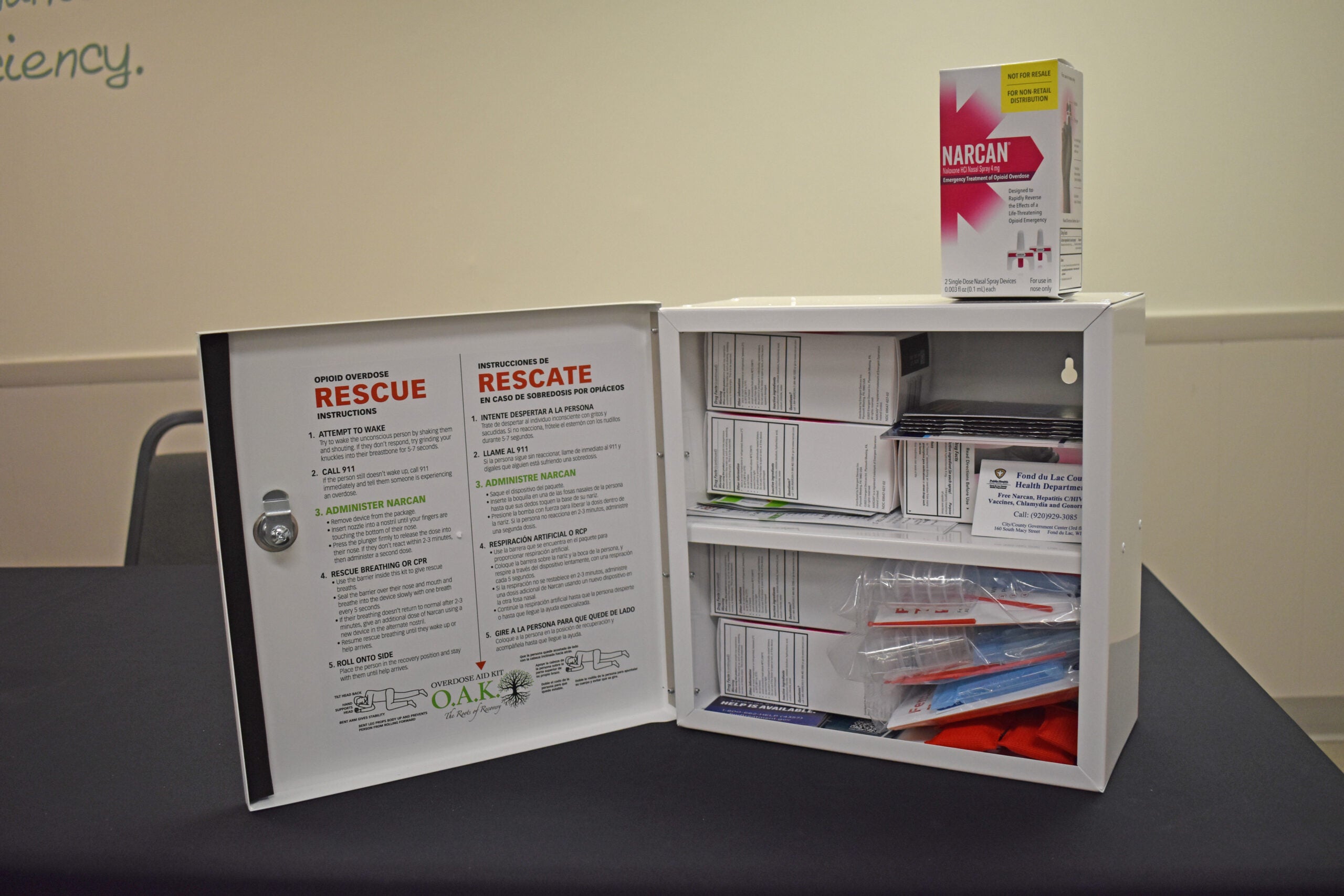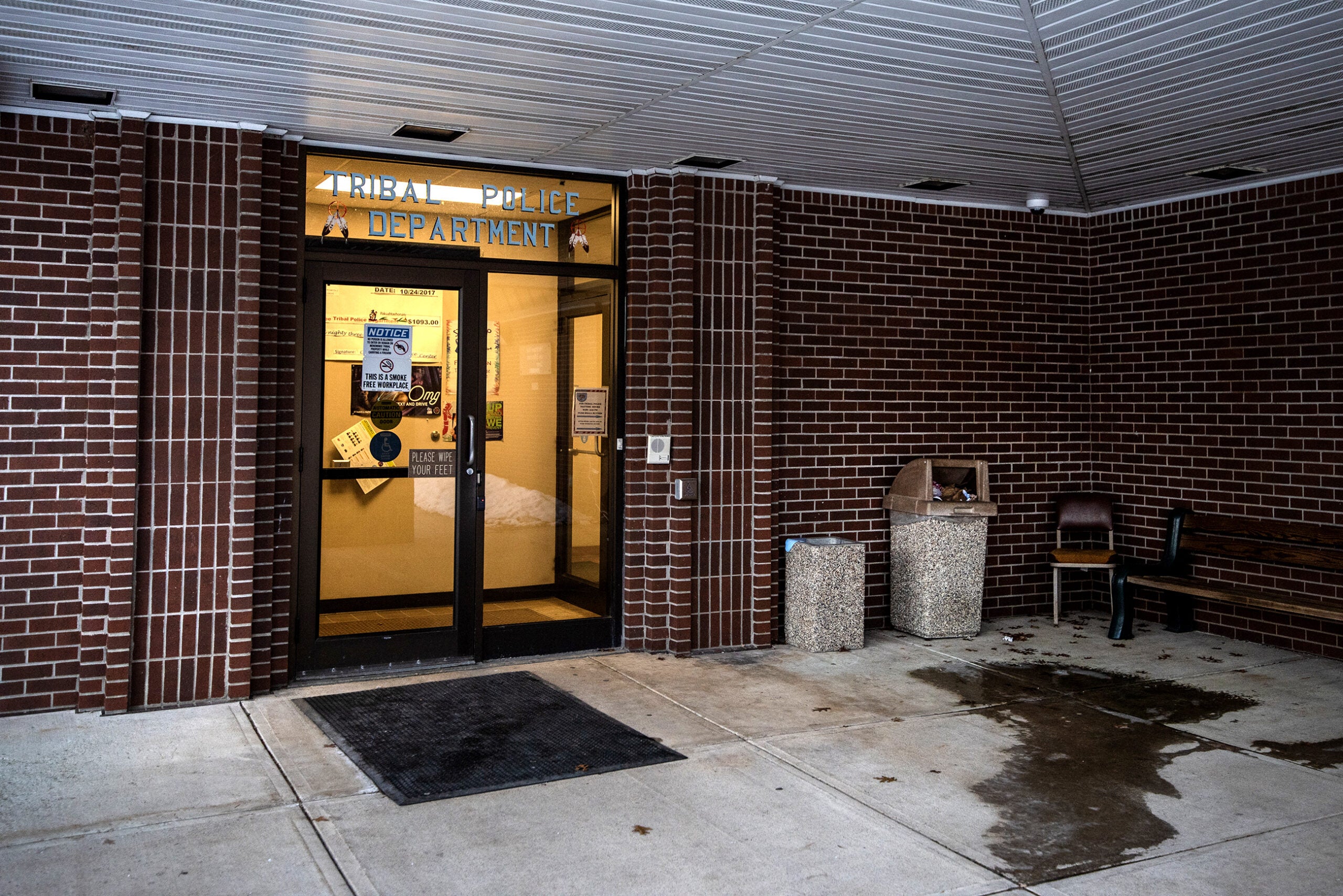A new program run by the Bad River Band of Lake Superior Chippewa is providing free medication to reverse opioid overdoses via mail as Wisconsin has seen a record number of overdose deaths in recent years.
Wisconsin saw a 900 percent increase in opioid overdose deaths from 1999 to 2018, while such deaths have reached record levels in more recent years. In 2021, the state Department of Health Services reported a record 1,427 opioid overdose deaths, of which opioids like fentanyl accounted for 91 percent of lives lost.
Preliminary state data shows opioid overdose or poisoning deaths declined slightly last year to 1,358, according to Wisconsin Watch. The investigative news outlet noted that’s still a 62 percent increase from five years ago.
News with a little more humanity
WPR’s “Wisconsin Today” newsletter keeps you connected to the state you love without feeling overwhelmed. No paywall. No agenda. No corporate filter.
As overdose deaths have spiked, the Gwayakobimaadiziwin Bad River Harm Reduction program is offering the opioid reversal drug nalaxone, more commonly known as Narcan, for free through the mail along with fentanyl test strips.
“Wisconsin has a very high opioid overdose mortality rate, and figuring out different ways of reaching people who are at risk is something that we’re experimenting with,” said Philomena Kebec, economic development coordinator for the Bad River tribe.
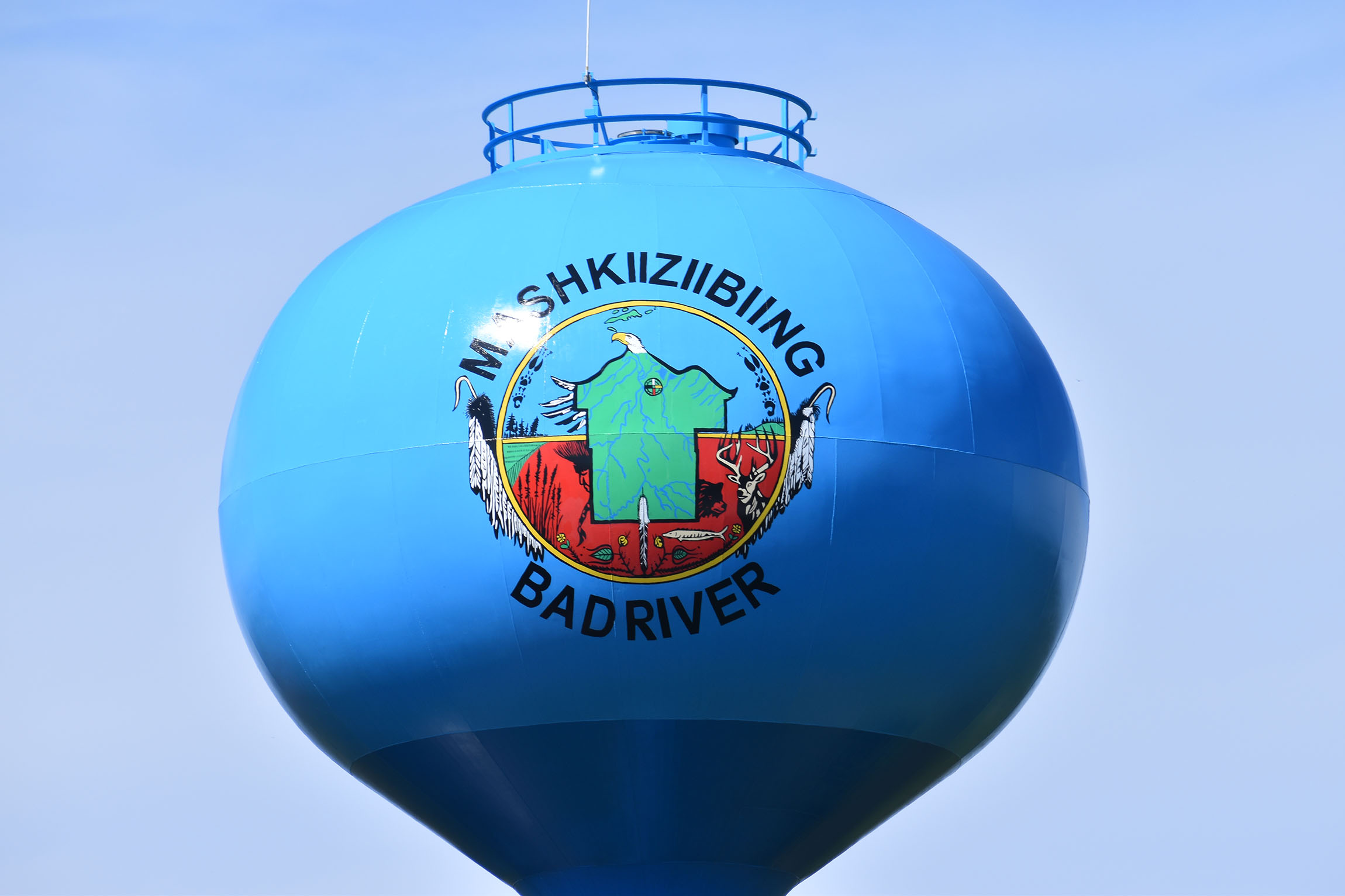
The tribe is offering the program to provide services statewide in partnership with NEXT Distro, an online and mail-based harm reduction platform.
“Through our innovative mail-based model, NEXT’s program is responsible for over 12,000 lives saved in other parts of the United States. We are looking forward to expanding this free, discrete service to support Wisconsinites in obtaining naloxone to protect their loved ones,” said NEXT Distro Founder and Executive Director Jamie Favaro in a statement announcing the program.
The tribe is also partnering with Vital Strategies, a nonprofit global public health organization. The group is working with seven states to strengthen efforts to reduce overdose deaths by aiding with staffing, funding, and technical assistance. Vital Strategies is providing $10 million to partners in Wisconsin through the next three years.
Adrienne Hurst, the group’s senior technical advisor, said they partnered with Bad River to expand the tribe’s harm reduction program, as well as offer the mail-order service. The tribe is receiving around $340,000 each year for harm reduction efforts. That has helped finance staff to support people using drugs, as well as provide supplies and safe spaces.
“Because Indigenous people are dying at more than twice the rate in the state, it’s really important that tribes and Indigenous people are at the forefront of the response for their communities,” Hurst said.
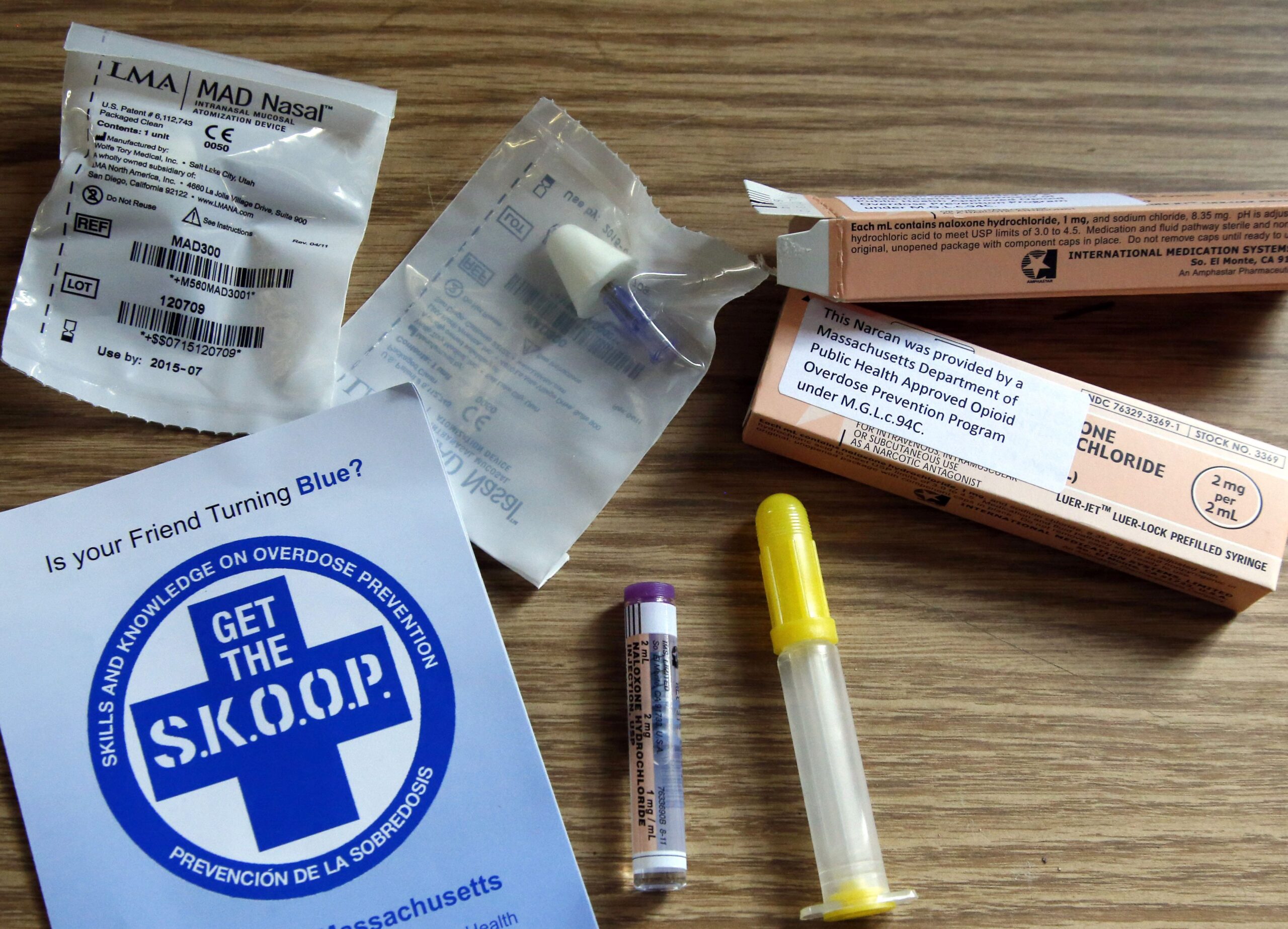
In addition to the statewide mail-order service, Bad River has been distributing naloxone through its harm reduction program to people using drugs across rural and tribal communities in northern Wisconsin that include Ashland, Bayfield, Price and Iron counties. Kebec said the tribe has distributed at least 2,000 doses of naloxone each year in the four-county region. Since the tribe began offering the mail-order service late last year, data from Vital Strategies shows 979 naloxone orders have been filled. That includes 146 orders filled in May.
More than half the orders in May came from six counties. They included Dane, Ozaukee, Milwaukee, Winnebago, Racine and Outagamie counties. Most individuals requesting naloxone are white, while Indigenous residents accounted for only 3 percent of orders. Almost one third reported they had witnessed someone overdose in the past year.
People can request injectable naloxone, a limited supply of Narcan nasal spray, or fentanyl test strips through NEXT Distro’s website. The service collects information from those requesting medication, which is kept confidential. It works with the tribe to discreetly mail opioid reversal drugs or test strips.
“The packages that we mail out — they’re very nondescript,” Kebec said. “It looks like a package that you would be receiving from any kind of online vendor. It doesn’t say harm reduction on it. It doesn’t say naloxone.”
Kebec said the tribe has been working to eliminate barriers to access naloxone, as well as reduce the stigma for those in need of opioid reversal drugs. She noted Wisconsin lawmakers have also eliminated the need to get a prescription for naloxone, as well as reduced criminal and civil liability for those administering the opioid reversal drug.
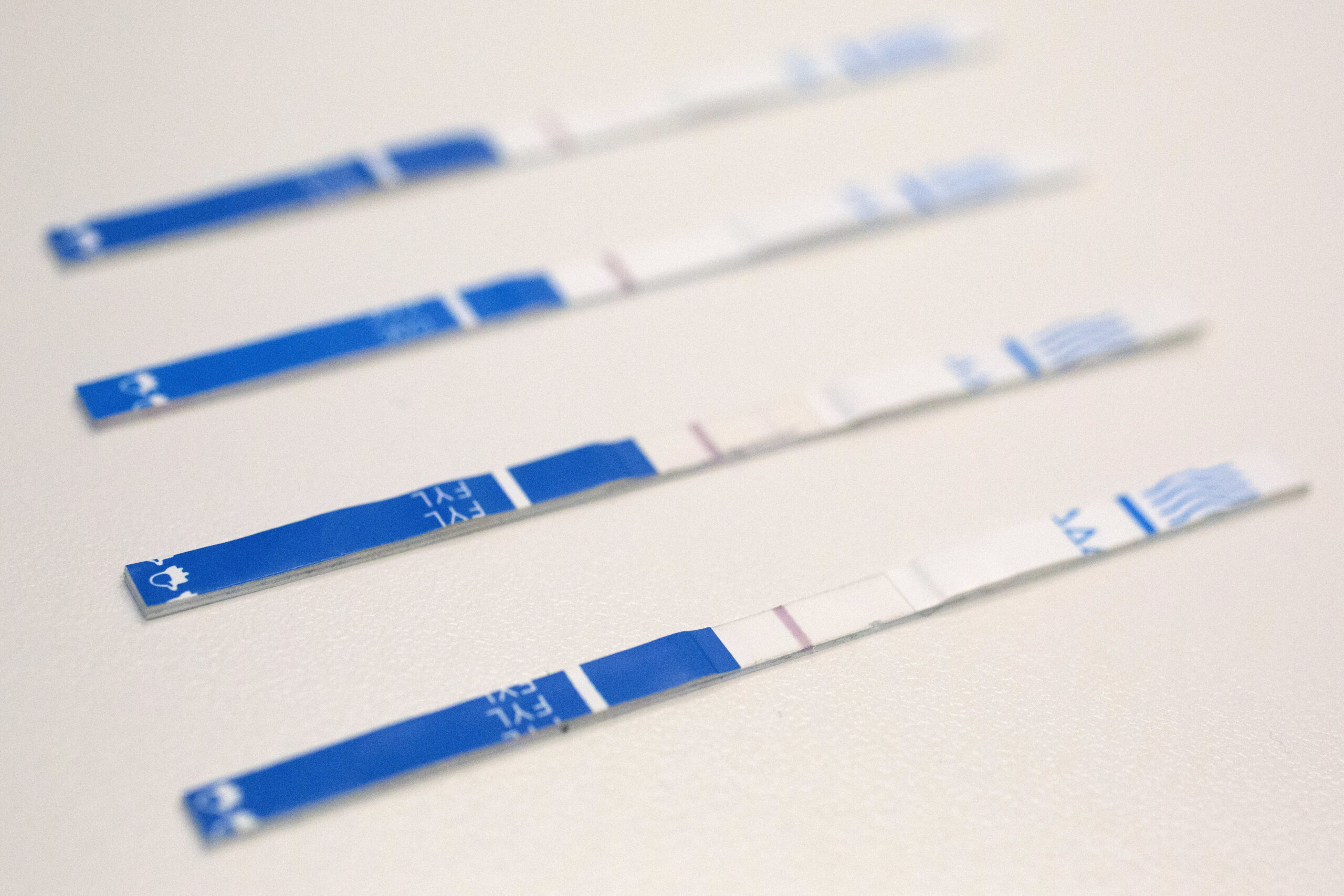
As lives continue to be lost, Kebec said they want to ensure Wisconsin residents have multiple ways to access life-saving medication. She added that the tribe saw more than 20 opioid overdose deaths on the Bad River reservation last year.
“It’s always very hard to recover from these deaths. It stops our business. We have to grieve,” Kebec said. “At certain times, we have just had death upon death upon death.”
She said many of those who died were parents, posing devastating effects for children and the community.
Elsewhere in Wisconsin, community leaders have been trying to boost access to harm reduction materials. In Milwaukee, the city’s police and fire departments have been working with the Milwaukee County Sheriff’s Office to distribute kits that contain opioid reversal drugs, fentanyl test strips, CPR masks and information about treatment and community resources.
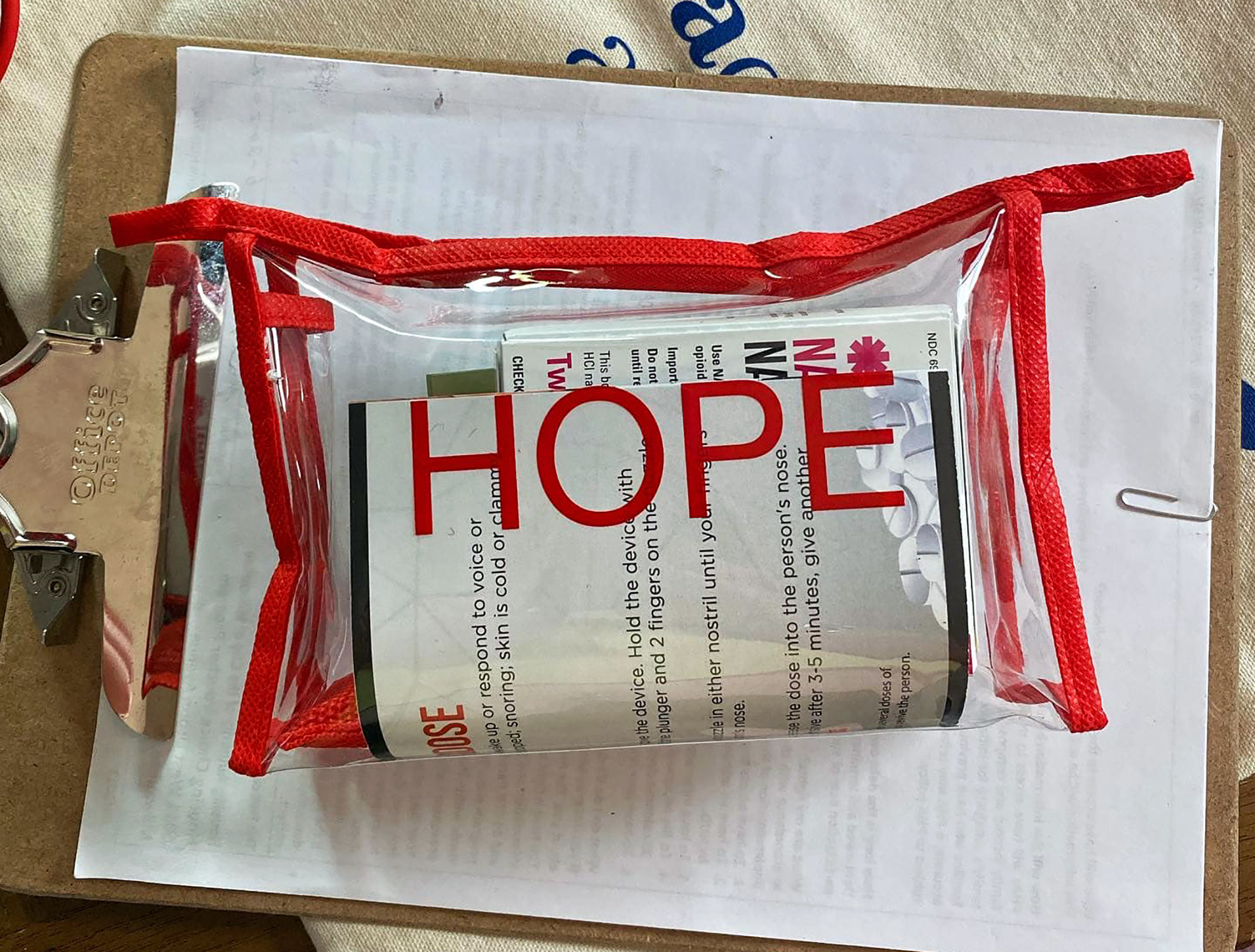
Hurst said Vital Strategies has also been working with partners in Milwaukee to reduce overdose deaths, noting that Black residents in Wisconsin are also dying at more than twice the rate of the state’s population.
“We have a particular focus on Milwaukee’s Black neighborhoods,” Hurst said. “We supported the development of a North Side Harm Reduction Coalition that identified what they need to reduce drug deaths in their neighborhoods.”
In addition, Milwaukee County has been filling vending machines with free supplies of Narcan and fentanyl test strips as the county is anticipated to set another record for overdose deaths for the fourth year in a row. The Wisconsin Department of Health Services is using $2 million to support the purchase of vending machines that contain harm reduction supplies, and it’s awarded grants of up to $55,000 to 28 organizations statewide.
Within the Bad River reservation, Kebec said they’re trying to identify the root causes of opioid use and take steps to prevent overdoses.
“Naloxone is a great medication,” she said. “But what’s even better is if we can get people into the care that they need, so that they’re not at risk of overdose in the first place.”
Wisconsin Public Radio, © Copyright 2025, Board of Regents of the University of Wisconsin System and Wisconsin Educational Communications Board.

